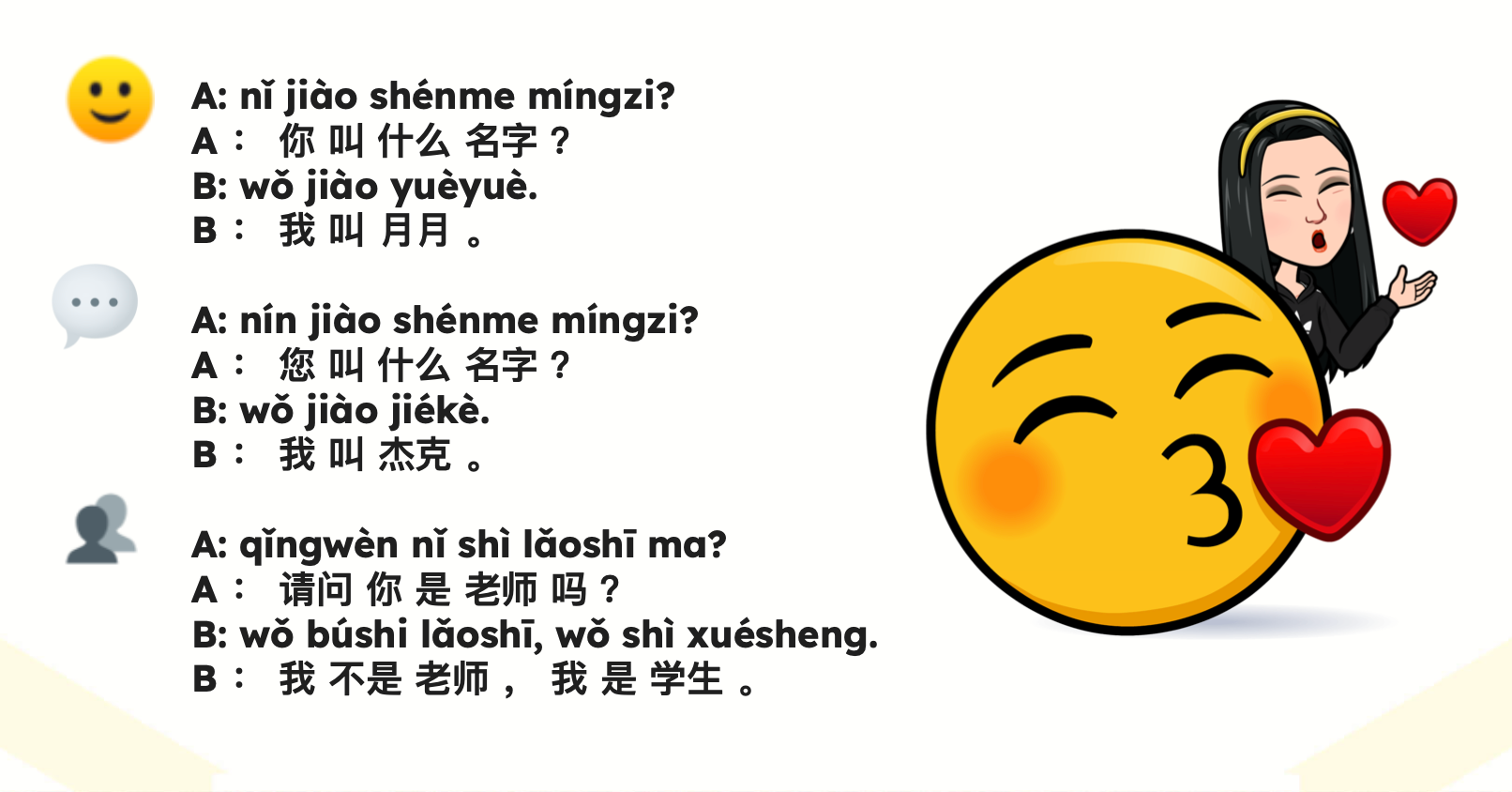How to Introduce Yourself in Chinese
Introducing yourself is a fundamental skill in any language, and Mandarin Chinese is no exception. In this article, we will explore various phrases and expressions for self-introduction, sample dialogues, and practical usage tips to help you communicate effectively in Chinese-speaking environments
Why Self-Introduction Matters in Chinese Culture
Self-introductions are crucial in Chinese culture as they set the tone for social interactions. They reflect your respect for the person you’re meeting and can create a positive first impression. Being able to introduce yourself confidently will enhance your communication skills and help you build relationships in both personal and professional settings.
2. Essential Phrases for Self-Introduction in Chinese
2.1 Basic Self-Introduction Phrases in Mandarin
The most common way to introduce yourself in Chinese is by using the phrase:
• 我叫 [Your Name] (Wǒ jiào [Your Name]) Translation: My name is [Your Name].
2.2 How to Introduce Your Name in Chinese
When stating your name, you can also include your surname:
我姓 [Your Surname] (Wǒ xìng [Your Surname]) Translation: My surname is [Your Surname].
2.3 Sharing Your Age in Mandarin
To mention your age, you can say:
我 [age] 岁 (Wǒ [age] suì) Translation: I am [age] years old. Example: 我25岁 (Wǒ 25 suì) – I am 25 years old.
Expressing Your Nationality in Chinese
You can introduce your nationality using the phrase:
我是 [Nationality] (Wǒ shì [Nationality]) Translation: I am [Nationality]. Example: 我是美国人 (Wǒ shì Měiguó rén) – I am American.
2.5 Discussing Your Occupation in Mandarin
To introduce your job, you can say:
我是一名 [Occupation] (Wǒ shì yī míng [Occupation]) Translation: I am a [Occupation]. Example: 我是一名教师 (Wǒ shì yī míng jiàoshī) – I am a teacher.
2.6 How to Talk About Your Interests in Chinese
To share your interests, you can say:
我喜欢 [Interest] (Wǒ xǐhuān [Interest]) Translation: I like [Interest]. Example: 我喜欢旅行 (Wǒ xǐhuān lǚxíng) – I like traveling.
3. Sample Dialogues for Various Self-Introduction Scenarios
3.1 Casual Self-Introductions in Chinese
Dialogue:
A: 你好!我叫小明。你呢? (Nǐ hǎo! Wǒ jiào Xiǎomíng. Nǐ ne?) Translation: Hello! My name is Xiaoming. What about you?
B: 你好!我叫莉莉。我是大学生。 (Nǐ hǎo! Wǒ jiào Lìlì. Wǒ shì dàxuéshēng.) Translation: Hello! My name is Lili. I am a university student.
3.2 Formal Self-Introductions for Professional Settings
Dialogue:
A: 大家好,我姓张,来自中国。 (Dàjiā hǎo, wǒ xìng Zhāng, láizì Zhōngguó.) Translation: Hello everyone, my surname is Zhang, from China.
B: 很高兴认识您,张先生。 (Hěn gāoxìng rènshì nín, Zhāng xiānshēng.) Translation: Nice to meet you, Mr. Zhang.
3.3 Business Introductions in Mandarin
Dialogue:
A: 您好,我是李经理,负责市场营销。 (Nín hǎo, wǒ shì Lǐ jīnglǐ, fùzé shìchǎng yíngxiāo.) Translation: Hello, I am Manager Li, responsible for marketing.
B: 您好,李经理。我是王博士,来自研发部门。 (Nín hǎo, Lǐ jīnglǐ. Wǒ shì Wáng bóshì, láizì yánfā bùmén.) Translation: Hello, Manager Li. I am Dr. Wang, from the R&D department.

4. Self-Introduction Example for First Day at Language School
大家好,我叫李明。我来自美国,今年25岁。我是一名学生,正在学习中文。我喜欢旅行和学习新语言。很高兴见到大家,希望能和你们一起进步! (Dàjiā hǎo, wǒ jiào Lǐ Míng. Wǒ láizì Měiguó, jīnnián 25 suì. Wǒ shì yī míng xuéshēng, zhèngzài xuéxí zhōngwén. Wǒ xǐhuān lǚxíng hé xuéxí xīn yǔyán. Hěn gāoxìng jiàn dào dàjiā, xīwàng néng hé nǐmen yīqǐ jìnbù!) Translation: Hello everyone, my name is Li Ming. I am from the United States, and I am 25 years old. I am a student currently learning Chinese. I enjoy traveling and learning new languages. It's great to meet everyone, and I hope to make progress with you all!
5. Tips for Effective Self-Introductions in Chinese
- Be Polite: Use polite forms of address, especially in formal settings.
- Practice Pronunciation: Focus on the correct pronunciation of tones in Mandarin to ensure clarity.
- Tailor Your Introduction: Depending on the situation, adjust your introduction to include relevant details
- Maintain Eye Contact: In Chinese culture, maintaining eye contact shows confidence and respect.
6. Conclusion: Mastering Self-Introduction in Mandarin
Mastering self-introduction in Chinese is an essential step in developing your language skills and building relationships. By using the phrases and dialogues provided in this article, you will be well-equipped to introduce yourself effectively in various situations. Remember to practice your pronunciation and adjust your introduction based on the context to make a positive impression.
Topics
Popular Blog Posts
Free Language Course
Language learning apps
Online language learning
Intro
Discount preply
Cheap preply
Busuu
Busuu app
Is Busuu free
Free4Talk
Think In Italian
Babbel app
Is Babbel free?
Babbel cost
Babbel Spanish
Babbel vs. Rosetta Stone
Duolingo
Duolingo English test
How much is Duolingo plus
Rosetta Stone
Rosetta Stone languages
Rocket Languages

